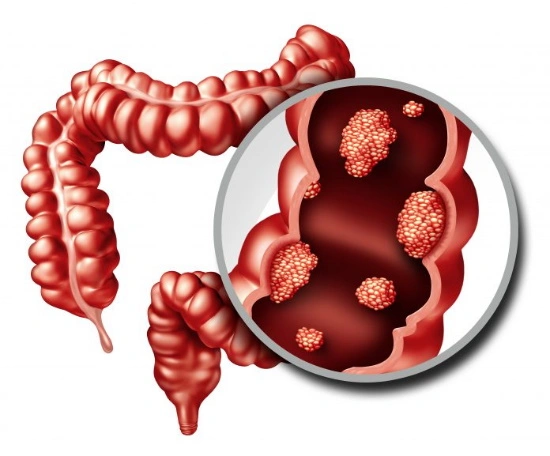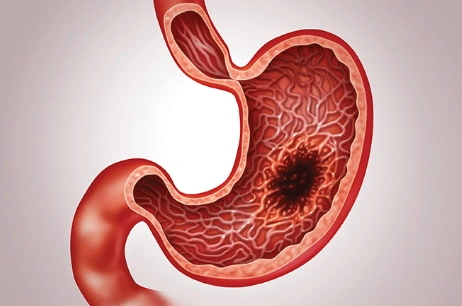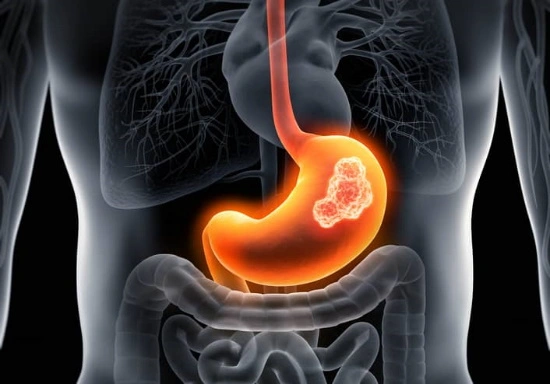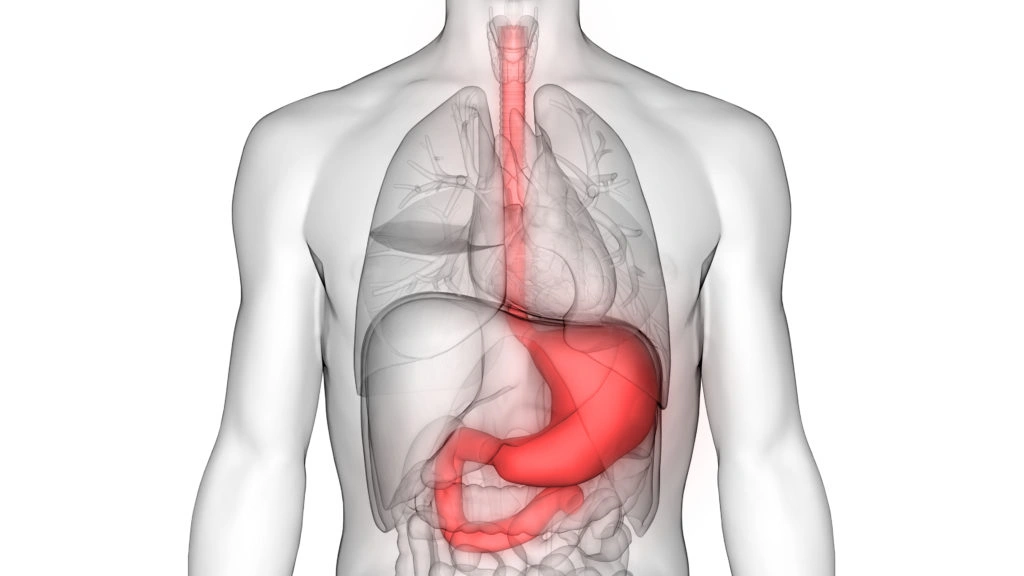Colorectal cancer genes

If you tested your DNA with a personal genomics service like 23andMe, AncestryDNA, FamilyTreeDNA, MyHeritage or another testing company, you can learn more about your risk factors for hundreds of diseases. By clicking the button above ⬆️, you can upload your raw DNA data file and receive a personalized 250-page health report with research links that is the most comprehensive.
One of the prevalent cancer syndromes that can be inherited is colon cancer. Chromosome 2 contains MSH2 and MSH6 genes, while chromosome 3 contains MLH1 gene, all of which are associated with colorectal cancer. These genes typically aid in correcting errors that occur during DNA replication. However, if the MSH2, MSH6, and MLH1 proteins are altered and unable to function correctly, the replication errors remain uncorrected, resulting in DNA damage and ultimately, colon cancer.
Genes known as oncogenes are closely linked to the transformation of normal cells into cancer cells. On the other hand, tumor suppressor genes are responsible for producing proteins that help maintain the normal function of cells. In the case of colorectal cancer, some of the oncogenes that have been identified include Ras, EGFR (Erb-B1), Erb - B2, TGFalfa, and TGF-beta 1. Meanwhile, suppressor genes such as APC, p 53, p27, MSI, LOH 18q, deletion 5 q allele, and DNA Hyper methylation also play a crucial role in preventing cancer.
Approximately 40-50% of colorectal cancers have been found to exhibit Ras gene mutations [12,13]. The Ras oncogene family is responsible for encoding proteins located on the inner surface of the plasma membrane that bind guanine nucleotides and possess GTP-ase activity. These oncogenes generate signals that stimulate cell proliferation and play a crucial role in the cell cycle, making them a key factor in the early stages of colorectal tumor formation.
The activation of APC gene signaling is improper, as APC serves as a regulator for beta-catenin. The most frequent mutation found in colorectal cancer is the loss of function of the APC gene. When APC is absent, the Wnt gene is expressed, resulting in familial adenomatous polyposis (FAP), an autosomal dominant condition that causes the development of numerous adenomatous colonic polyps. This condition leads to an almost certain lifetime risk of developing CRC if pre-emptive colectomy is not performed.
The TP53 gene, also referred to as the "guardian of the genome," acts as a tumor suppressor gene and is often damaged in solid cancers. It is situated on chromosome 17 and plays a role in the development of 50% of sporadic colorectal cancers. In terms of its impact on therapy response, research on cell lines with homozygous p53 mutations has revealed a significant resistance to radiotherapy and certain chemotherapies, such as 5-FU.
The reason why mutations in genes that are crucial in all tissues lead to colon cancer is still uncertain. Nevertheless, research on the corresponding genes in mice and brewer's yeast is aiding in the advancement of our comprehension of DNA repair mechanisms and the potential impact of environmental factors on the occurrence of colon cancer.
Follow the link of the selected polymorphism to read a brief description of how the selected polymorphism affects Colorectal cancer and see a list of existing studies.
SNP polymorphisms related to the topic Colorectal cancer:
| rs367615 | Variant predisposition to colorectal and oesophageal cancer. |
| rs39453 | Variant predisposition to colorectal and oesophageal cancer. |
| rs1047781 | The weak secretory polymorphism rs1047781(385A>T) increases the risk of inflammatory bowel disease, colorectal cancer and oral cancer. |
| rs4987188 | The Gly322Asp single nucleotide polymorphism increases the risk of colorectal cancer. |
| rs4779584 | The genetic variant rs4779584 promotes colorectal adenoma and predisposition to colorectal cancer. |
| rs6983267 | SNP on chromosome 8q24 associated with increased risk of prostate cancer and colorectal cancer amenable to aspirin. |
| rs4939827 | Increased risk of colorectal cancer associated with SMAD7 genetic polymorphism. |
| rs10505477 | Genetic variation in 8q24 is associated with colorectal cancer risk. |
| rs7758229 | Genetic locus of susceptibility to colorectal, gastric and oesophageal cancer. |
| rs2423279 | A genetic variant associated with colorectal cancer risk. |
| rs11903757 | A genetic variant associated with colorectal cancer risk. |
| rs433852 | |
| rs8111500 | |
| rs3760775 | |
| rs12608544 | |
| rs2071699 | |
| rs11880333 | |
| rs441810 | |
| rs7030248 | |
| rs12603526 | |
| rs10849432 | |
| rs12309274 | |
| rs6691170 | |
| rs4246215 | |
| rs9929218 | |
| rs7229639 | |
| rs7014346 | |
| rs34245511 | |
| rs1800469 | |
| rs11169552 | |
| rs10774214 | |
| rs1665650 | |
| rs10411210 | |
| rs10936599 | |
| rs2241714 | |
| rs2427308 | |
| rs2229995 | |
| rs465899 | |
| rs961253 | |
| rs719725 | |
| rs4591517 | |
| rs36053993 | |
| rs4925386 | |
| rs4464148 | |
| rs3217810 | |
| rs396991 | |
| rs140355816 | |
| rs11255841 | |
| rs6687758 | |
| rs10795668 | |
| rs73376930 | |
| rs2057314 | |
| rs704017 | |
| rs9365723 | |
| rs1321311 | |
| rs6469656 | |
| rs16892766 | |
| rs3217901 | |
| rs11196172 | |
| rs3802842 | |
| rs10911251 | |
| rs63749924 | |
| rs1799977 | |
| rs1800734 | |
About The Author
Li DaliLi Dali, a National Foundation for Outstanding Youth Fund recipient, is a researcher at the School of Life Sciences in East China Normal University. He earned his PhD in genetics from Hunan Normal University in 2007 and conducted collaborative research at Texas A&M University during his doctoral studies. Li Dali and his team have optimized and innovated gene editing technology, leading to the establishment of a world-class system for constructing gene editing disease models.


